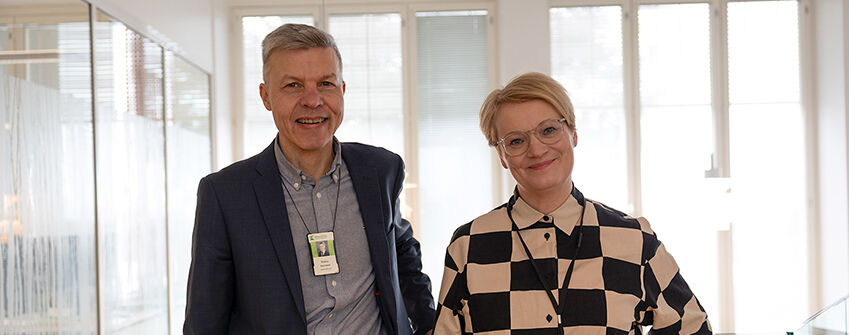The Vice President of Karelia University of Applied Sciences is changing, as the current Vice President, Pekka Auvinen, will retire starting from August 1, 2024. In February 2024, the Board of Karelia University of Applied Sciences Ltd. selected Dr. Marjo Nenonen as the new Vice President. Marjo Nenonen will start her duties as Vice President on August 1, 2024.
Marjo Nenonen currently serves as the Head of Education Development at Karelia University of Applied Sciences, but she has over 25 years of experience in higher education, including roles such as Head of Student Affairs, Head of Language Services, and as an English and Swedish teacher at Karelia UAS and other institutions. Her extensive career in various roles within higher education has provided her with a deep understanding of the university as a whole.
“I know the staff of Karelia UAS well. I have collaborated closely with the Karelia Student Union for a long time. Karelia UAS educational outcomes are excellent. Last year, we achieved the second-best result in the history of bachelor’s degrees, and the best result ever in master’s degrees. Student satisfaction has also been consistently high in recent years. It’s great to join a community whose strengths—and areas for improvement—I am already familiar with,” says Marjo Nenonen.
One of Karelia University of Applied Sciences strengths has always been its strong sense of community. In a small university, barriers are low, and collaboration has been easy to establish.
“In the recent audit report by the National Education Evaluation Centre, FINEEC (Karvi), the spirit of Karelia UAS was highlighted as one of its strengths. It’s great to start working in such a university community and with my own contribution, strive to ensure positive development in the future as well,” Marjo Nenonen adds.
Marjo Nenonen is an active participant in both national and international networks. Especially in these times, higher education, and education in general, have a significant impact on individuals, the vitality of North Karelia, and Finland as a whole.
“It’s important that we in this region work closely with both the working life and other educational institutions. The importance of international education is also increasing steadily.”

